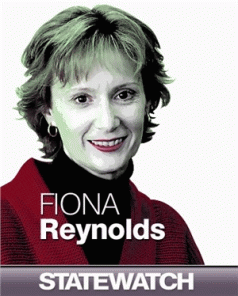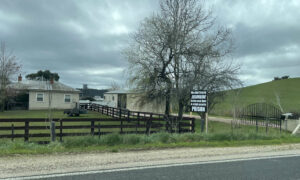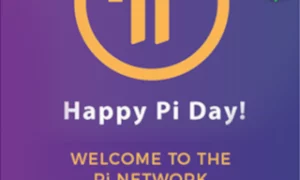Yet a few community-based anti- pulp mill protesters don’t seem to get that, despite at least three years fighting their cause.
That’s because they have little understanding of how to run a professional campaign. Certainly, their knowledge of the media is thin at best.
The handful of the people I’m talking about are supporters of TAP Into A Better Tasmania, formerly Tasmanians Against The Pulp Mill.
Most are like you and me – parents, small business people and pensioners. They fear their way of life is under threat.
But the way some go about it leaves them looking like a bitter and twisted rabble who risk damaging the reputation and work of other TAP members and professional and respected environmental campaigners.
They were all once focused, well researched, with strong leadership.
Now a few lack discipline and are alienating those who could help get a clear message out.
Enter Pulp The Mill, a new group that has so far shown itself to be well-organised with one plan – peaceful protest.
Opponents have criticised them because they’d been running protest workshops for about 18 months.
But at least they have a strategy and clearly identify themselves by wearing blue and white armbands.
Twenty-one Pulp The Mill people were arrested at the Beaconsfield Community Cabinet two weeks ago. Nearby, TAP protesters banged pots and pans vying for the media spotlight, while some condemned The Examiner and other media in their speeches.
Still they made front-page headlines.
(How odd that one TAP protester has since asked that a photo be “retracted” because it was published without consent.)
A week later when Gunns chairman John Gay’s house was allegedly damaged, hitting the front page, some TAP supporters complained.
The Examiner pointed out that the timing of the alleged incident was terrible, coming so close to the protest, but “the attacks may have nothing to do with the pulp mill”.
It was a statement of fact, interpreted by TAP supporters as The Examiner linking them. I’d ask who was jumping to the “self- serving conclusions” they warned against?
(Further comment on the alleged incident is not possible because it is now before the courts.)
Of course, emails and blogs accused Mr Gay of whipping up the story – now that’s “predictable”.
In fact, the Gunns boss didn’t want the story to be run. The Examiner learnt police were at his home and, given Mr Gay’s profile, that was news.
We’d report the same if we discovered police were investigating alleged vandalism at the home of Australian Greens leader Bob Brown.
And we’d sympathise just the same. How disgusting that a couple of people wrote to us saying Mr Gay “brought this upon himself” and was “reaping some of what he has sown”.
The next day they were outraged that former Premier Paul Lennon attacked the anti-pulp mill protesters in an opinion piece.
TAP was invited to write an opposing column on the same day and chose not to. Pulp The Mill submitted a piece.
There were blogs and emails calling on Mr Lennon to apologise for “pointing the finger”.
But apparently it was OK for anti-mill campaigners to be reported the day before – and write letters – saying that a disgruntled former Gunns employee could have been responsible, as a result of job losses.
The Examiner was accused of printing “defamation” against anti-pulp mill people.
A couple of old cliches spring to mind: don’t throw stones in glass houses, and practise what you preach.
Many letters to the editor and online comments from TAP members and supporters can’t be run because they’re defamatory, inaccurate or personal attacks.
But they can always vent their spleens on the Tasmanian Times website.
We operate under the law and adhere to Press Council guidelines and the journalist code of ethics, striving for accuracy, balance and fairness.
But the editor of the Tasmanian Times, Lindsay Tuffin, couldn’t say what regulatory body he operated under after pulling down one defamatory and inaccurate post about Examiner staff in April. He offered to let me correct the record “anonymously” – which I flat-out declined. And he boasts that balance is “appeasement”.*
So please don’t lecture me on the law, ethics and accuracy.
Our reporters put their names to stories and are continuously attacked by people too gutless to identify themselves.
We choose not to read the rantings of conspiracy theorists who spread rumours and are rapidly alienating sections of the media and community who were prepared to listen to their concerns.
Those who do put their names to emails or posts astound me even more.
They’ll attack us, then ask the newspaper to run their letters, to pursue a story that serves their personal interests, while their leaders seek free advertising for TAP events. Are they kidding?
I’ve been told that TAP is a community- based group, therefore the leaders can’t control what a few in their ranks write or say. An excuse for this group completely lacking discipline.
And so, in my opinion, their media strategy is ultimately doomed to fail.
They’ve benefited in the past from our focus on the primary objective of reporting the news, regardless of whether a group is biting the hand that feeds it.
On a personal level, many TAP members and supporters are very likeable, but a handful are just sad, irrational souls.
So where does that leave us?
To achieve balance and fairness we can go to professional environmental campaigners like the Wilderness Society for comment, despite receiving an email in August from a TAP member complaining that we went to someone “down South” for comment.
Yes, I tried to understand TAP. But I’ve had enough. I guess the feeling is mutual.
Now I sit back and wait for the inaccurate, bullying and slanderous emails, blogs and calls to flood in.
This comment is taken from The Sunday Examiner website: Here: Read more here
*TT: Fiona was offered as much or as little space as she wanted to state her case over this comment. She was dismissive of the idea. She was then offered the chance of anonymously commenting if she felt embarrassed to be publicly identified with Tasmanian Times. She was equally dismissive of that idea. In that conversation there was an open exchange of views about how overly-sensitive journalists can be to criticism; especially in view of media’s role in the presentation of unsavoury fact.On Thursday night she was again publicly offered as much time and space on this website as she may want. She again declined. Questionable comments occasionally do slip through. But immediately we are aware of them, they are edited or corrected or deleted. Mercury Editor Garry Bailey on Thursday night spoke of this regular practice on The Mercury website. It is not unusual.
Tasmanian Times reluctantly allows anonymity. This policy emerged because from its inception seven years ago, it quickly became apparent that there were some people who faced retribution if they commented fully and openly. It is a policy which is problematic, but deemed, sadly, necessary, because of the nature of the public sphere here. As for the regulation, last time we looked we weren’t in Stasiland. TT has its policy, adopted and adapted from long-esbalished sites like Crikey: Here. Tasmanian Times will always welcome a fierce, no-holds barred debate. We will welcome with open arms any criticial perspective. It has been TT practice in the seven years of our existence to request articles critical of this website for immediate publication here, so people can freely make up their own minds. We are not precious. We do not sue. We do not issue writs for defamation (they are issued against us though). If you give it you’ve got to learn to take it. That’s the way societies are refined; that is how open, free and honest debates occur.



























Stephani of Rowella
October 17, 2009 at 16:15
When this article was first spotted by me I felt I had to respond as did 4 0r 5 others. Some agreed with Fion’s comments others disagreed. I went back to article 1/2hr later to see if anymore comments were posted and guess what. All ability to comment or even read prevous comments seems to have magically dissappeared
smithee
October 17, 2009 at 16:18
Ho ho ! So her Majesty Queen Reynolds has decreed the form that protests and protest organisations should take or the Examiner will just get fed up and stop paying attention ? The organisations don’t know how to run a campaign or know about the media ?
The arrogance of Reynolds is breathtaking.
It’s not up to the Examiner to decree anything. It’s supposed to be reporting. Instead Reynolds is trying to find a convenient excuse to dismiss an organisation because it happens to be irritating Gunns.
Reynolds rave seems a bit intense doesn’t it ? The lady doth protest too much, methinks. A little ruffled by events beyond her comfortable advertorial zone.
I think she’s feeling the heat. The heat from Gunns, the heat from a community fed up with the Examiner’s obvious kowtowing to big business, and the heat from falling circulation.
The problem with the Examiner is that it’s in thrall to Gunns. It’s part of the corrupt machinery of this state and is far too frightened to ever break any stories.
When has the Examiner ever shown any journalistic guts ? Not on the Reynolds watch that’s for sure. The only people the Examiner goes after are the soft targets of drink drivers and protest groups.
I hope the protest groups do the exact opposite of what Reynolds suggests. That way the Examiner will attempt to ignore them, the community will see the increasingly obvious gulf between fact and the Examiner’s fantasy world, and the transformation of the Examiner into a free advertorial letterbox stuffer will be complete.
Annie
October 17, 2009 at 16:30
Oh dear, Fiona!
Aren’t we being a tad sensitive, having been outed for running endless rubbish in an irrelevant rag?
But I suppose a cornered animal will fight with this kind of venom.
Keep it up – you are your own worst enemy!
The sooner the Examiner folds, the better, in my opinion.
Anne Layton-Bennett
October 17, 2009 at 16:32
Dear Ms Reynolds
In fact the community has been seeking answers to concerns about the proposed mill for over five years, not three. But you are correct in saying
many are parents, small business people and pensioners. And their concerns about this mill are such that hours of their free time has been – and continues to be – spent fighting to have these concerns recognised, acknowledged and answered. So far with zero success. However their
collective life experience hasn’t necessarily included knowing the finer points of how the media works. Why should it? Even so if an image is published that is clearly a mischievous distortion of reality, why should its retraction not be requested?
The TAP protest at Beaconsfield was far from being bitter and twisted. Rather it was an opportunity for members of a deeply distressed community to vent their frustration and anger in a controlled and organised environment, which was at no time either ‘fiery’ or ‘chaotic’. Banging drums and pots and pans may have appeared unprofessional, but it certainly elicited the desired media response. And contrary to your inference, the event had in fact undergone a good deal of planning.
You should remember that the preferred and peaceful methods of letters, emails, phone calls and one-on-one appointments have been tried endlessly, but they have signally failed to have any effect whatsoever on our elected MPs. Individuals who are, after all, supposed to represent the wishes of their electorates. So rather than dismiss the authors of all those letters and phone calls as hysterical ranters, and consign their missives to the bin, perhaps you could ask your reporters to exercise some journalistic inquisitiveness. Suggest they get out more, and follow up concerns about the serious health risks involved in locating the proposed mill in the Tamar Valley. Or the earthquake risk due to the region being on a fault line. Or the risk of horrific road accidents because pulp mill emissions will create
whiteout conditions, exacerbating the valley’s existing airshed problems. Not to mention concerns about water quality, threats to wildlife, marine life, and the lives and livelihoods of people.
I could go on.
Provided your reporters seek information from sources other than Gunns’ discredited IIS or the latest PR spin I feel sure the stories they write
will also give you cause for concern.
Dave Groves
October 17, 2009 at 17:59
I am no Greenie.
I am no TAPper.
I am no Liblabber.
I am no eco terrorist.
I am no extremist.
I am just someone who has had a gut full of the endless chicanery, that flows like swill into the trough, from self serving people on all levels.
Are these people stupid or have they been dribbling for so long that they have slipped over on their own slime and taken a knock to the noggin’?
What notion enters their noodles when there are 10,000 plus people marching through the streets of Launceston and they label them misinformed?
Are we all retarded or would they just like us to be?
Small wonder there is little respect for the daily reporting, and for dodgy self serving “leadership” at both government and business levels.
Still, money must mean a great deal to these people, but what a sacrifice!
salamander
October 17, 2009 at 18:55
Fiona Reynolds has a go at a handful of protesters – for what? For putting their name on posts, for not putting their name on posts, for asking questions, and for getting angry – as she evidently is.
Hmm, seems to me she is a tad unprofessional?
One needs to be “engaged in a profession or engaging in as a profession or means of livelihood” to be professional – as Fiona is, so she needs to meet certain standard in her work. It doesn’t fit protesters, because much as some would like it to be so, we don’t get paid for protesting.
john hayward
October 17, 2009 at 19:04
Their investigation of the Gay bombing should by itself win the Examiner a Walkley. But it’s their fearless publication of a J’accuse by a revered former premier against a terrorist organisation that could well win the paper a Nobel.
John Hayward
DIck Barton
October 17, 2009 at 19:43
It’s interesting that Fiona Reynolds implies criticism of TAP members for not being professional.
Does she not realise they are an inherently amateur organisation?
Her implication that she could get ‘balance and fairness’ about a Tamar community group issue from an environmental organisation based in Hobart is astonishing. Presumably she believes that the way to get ‘balance and fairness’ is to ignore the local (amateur) community and seek the opinion of a professional organisation elsewhere.
From a business perspective, you’d think that she could learn a lot about her actual market (people living in the Tamar) by listening to local people and trying to appreciate their concerns.
Yet she makes no allowance for their amateur status, nor any appreciation of the contradictions of her seeking ‘balance and fairness’ from an irrelevant organisation hundreds of kilometers away.
Why does the word ‘hubris’ keep springing to mind?
Christopher Purcell
October 17, 2009 at 19:43
Hooo weee! The Beaconsfield protest really did throw the plutocracy & their hangers-on.
That was just a warm up Fiona. Us bitter & twisted rabble who occupy the high moral ground, who lack discipline and are rapidly alienating sections of the media and community with our spleen venting rantings & conspiracy theories, who spread rumours and are sad, irrational souls, too gutless to identify ourselves & who banged pots and pans while vying for the media spotlight, are over ‘nice’, Fiona. And Fiona, don’t tell us how to behave. Instead, why don’t you turn your journalistic eyes towards the politicians & their corporate donors who have defiled democracy in this State. Then you might see why us rabble, are so angry. Or would that be too conspiracy theory/revealing for you?
Does this mean that the Examiner won’t be ‘reporting’ future protests if they aren’t nice enough?
James
October 17, 2009 at 20:07
I agree, so why are there so many distortions of reality allowed on this website?
The fact that some are obviously jokes and others are delusional inferences from desperados means very little to the person/entity which they are defaming or misquoting.
Anyway, while you’re all busy mocking the Examiner, you’re ignoring that by actually using the websites name in her article she is helping to promote it – many would not have even heard of it, I just hope any newcomers are capable of wading through the rubbish to get to the quality that most of us read & support this website for.
Brendon Smith
October 17, 2009 at 21:11
Fiona Reynolds spray says so much about the way her paper operates. In exchange for Gunns continued business the Examiner minimises criticism and gives favourable coverage to the company.
The clear message from Reynolds rant today is the Northern Tasmanian community should do the same.
If you want to be published or use the services of our paper do not criticise us!
Fiona Reynolds and her team would like to think northerners were too dumb to notice, too dumb to read between the lines of last weeks coverage of a petty act of vandalism at Mr Gays house.
The Examiner are used to getting away with this type of shoddy reporting.
The Examiners coverage may even have prejudiced a case that is now before the courts by running an editorial line that the recent crime was part of an overall campaign of intimidation.
The irony of Fiona Reynolds’ ridiculous proclamations re. anti-mill groups reputations being at risk is that there would have been little risk to TAPs reputations were it not for the reckless and irresponsible way in which the Examiner sensationalised and wrongly framed the issue.
As a consequence of the Examiner’s coverage of this issue, damage to the reputations of groups like Pulp the Mill and TAP is almost certainly ensured.
Yet TAP have committed no crime, no offence and their name is being dragged through the mud by the Examiner led by its editor.
Why?
Because TT has given a forum for people in the northern community to express views that have been held in the northern community for many a year about the Examiner and its relationship with Gunns.
The only difference now is that these views are coming out.
Thank you Lindsay for that.
I encourage all mill opponents to rally together and not to be cowed and intimidated by Northern Tasmanias biggest newspaper.
For some people that will be the effect of the newspapers editor targetting a section of the community.
Todays opinion piece by Fiona Reynolds leaves her little room to move. What was the point of todays spray? To silence the papers critics once and for all?
I urge people not be silenced.
To keep hold strong to their views and to avoid getting personal and nasty. One does not need to resort to this to prosecute a case against the Examiner as they leave themselves wide open through their own mistakes and unprofessionalism.
I do not blame people for not putting their real name to comments.
I no longer trust the Examiner. They scare me.
Aside from the fact that they have nailed their colors to the mast and taken the corner of a litigous logging corporation over the community, the Examiner have lost the plot and quite frankly todays opinion piece by Reynolds scared me.
Reynolds has simply poured more fuel onto a fire that she and her paper created in the first place.
Grow up Examiner.
Bob McMahon
October 17, 2009 at 21:14
The Examiner is running with the oldest trick in the book. Going the smear and the discredit. One can only assume the anti-mill campaign is hurting.
Can you remember Premier Eric Reece? He was the first Tasmanian politician to receive a ‘death threat’. It was at the time of the Lake Pedder campaign when a letter threatening to bomb Eric’s house turned up in his letter box. The media went bananas just like the Examiner did over the ‘attack’ on John Gay’s house. There was barely a murmur when the police tracked the letter down to two 13 year old school girls.
Can you remember when Di Hollister of the Greens was up for election when by a stunning coincidence ‘bombs’ appeared on railway bridges in the north west of the state, attributed to a new extremist environmental group called something like Earth First.
A prescient media observer said to me immediately after Beaconsfield: “Get ready for the smear campaign.” How right he was.
So I take heart from this smear campaign. It proves that as a bunch of amateurs we must be upsetting someone’s little apple cart. I found Lennon’s headlined spray in the Examiner to be highly amusing. (As Premier he was easily goaded into rash utterances). I find Fiona’s editorial less amusing – sad merely.
phill Parsons
October 17, 2009 at 21:33
As a candidate in the Meander Valley Council election I have stuck to my position of neither buying or advertising in the Ex.
Its publishing of the unfounded allegations of lennon showed that my decision to not support it as a newspaper is justified.
Authorised by phill Parsons 199 Samuel St Elizabeth Town
Judith King
October 17, 2009 at 21:51
The important point that Fiona misses in her article is that the Tamar Valley community is demanding its basic rights to clean air and clean water.
It is the majority of our community wanting to be heard.
The politicians and press are ignoring the fact that the mill is inappropriate in the Tamar Valley with its known airshed inversion. It will be detrimental to our health.
The Examiner, with an article like this, is attacking the very community it is meant to serve.
It is an odd situation when the main newspaper attacks its readers! not a good journalistic approach.
Valleywatcher
October 17, 2009 at 22:34
I find this unbelievable!
All I can think of is that the Examiner is fighting for its life. No-one I know buys it. I don’t buy it very often, but I flick through it if it happens to be lying around, which takes around five minutes, tops. Usually the only pages worth looking at are the letters to the editor pages – at least there is sometimes some unbiased opinion there.
I think it would be a little sad to see it go, given the reason why it started up in the first place. What a descent into the mire it has been for this once-proud newspaper!
I had great hope that AT LAST we would get a local newspaper we could have some pride in when Ms Reynolds took over the editorial reins…….alas, not to be.
Rodney
October 17, 2009 at 22:57
What does it tell us about the Examiner that they would pull online comments on the Reynolds spray?
How can the Examiner expected to be taken seriously if they will not allow readers to respond?
That is dictatorial and not free and fair press. That sums up the Ex. in a nutshell.
Pete Godfrey
October 17, 2009 at 23:24
Fiona may be right we may be unprofessional.
Unlike the rent a crowd paid pro mill protestors we freely give our time to fight for a future for this state.
We get angry, we get sad, we laugh, we cry overall we have tried in all the “legal” ways to have our say and we have been ignored.
When an ex premier who had less support in the state than the Greens writes a defamatory load of vitriol that is totally unfounded it gets printed in the paper. Why?surely any thinking professional journalist would have known that it would be wrong to assist in an act of Sedition such as that especially as the claims were totally unfounded and misinformed.
One question that keeps popping up in my mind is just what is “a virtual home invasion” so far the only virtual things I have seen were all imaginary, exactly like the things that the past premier wrote in what appears to be an alcohol induced stupour.
Fiona may be upset, she has a right to her feelings as we all do. I am happy to keep on doing my day job and be an unprofessional, pissed off, anti pulp mill protestor.
See you on the ramparts.
Potential Examiner victim
October 17, 2009 at 23:25
As a first time arrestee and one of the 21 arrested at Beaconsfield, I am alarmed at the biased media coverage by the Examiner of the Beaconsfield event and the week’s untrue media that followed. I am concerned about the influence it will have when we go to court. Where is due process being applied by the Examiner?
Not in the cropped photos and inflammatory headlines in the Examiner in no way represented the well organised protest at Beaconsfield.
Certainly not in the inflammatory headlines of Prismall or Lennon or Gutwein.
Then alarmingly a week later, the 21 arrestees are directly linked by the Examiner to some prank graffiti on John Gay’s fence.
But wait there is more; the ex-Premier Lennon is published in the Examiner citing all types of malevolence by anti-forestry anti-pulpmill protestors.
It had taken a lot of thought and soul searching to arrive at the decision that civil disobedience was the only option left as the petitions, rallies, letters and requests for meetings have been ignored by our elected representatives.
There was no person in our group of 21 who took the arrest decision lightly and we are all paying our own fines [someone asked that question re donors today]. We are putting our money and ourselves forward as the final protest as there is no other choice left given the government and opposition behaviour in Tasmania towards the fast-tracked mill process.
This further attack by Fiona Reynolds adds to my concern regarding a fair trial given the frenzy the Examiner is whipping up. I rang the Police Inspector in charge of the arrests to voice my concerns and was told that the police were meeting with the Examiner as they too, were dissatisfied with the inaccurate coverage.
It is interesting that Fiona has released a defensive spray in the Sunday Examiner 181009 about the antimill protestors but has not apologised for the lies that were published in the Examiner, or neither has Lennon following his Examiner outburst.
I want an agreed printed retraction with an apology to the 21 arrestees from Pulp The Mill and for all the TAP supporters. Furthermore I would like an article about the Tamar Valley community’s fight plus information from Tap Into a Better Tasmania and the peaceful community protest group Pulp The Mill with their philosophies, web references and contact numbers for further enquiries.
The behaviour of the Examiner staff and the Editor is unprofessional and worse, dishonest. We deserve much better journalism.
William Boeder
October 18, 2009 at 01:04
Sadly for the Examiner is the manner in which their chief aim appears to give its fullest support to the repugnant Ancient Forest slaughter industry.
For any news medium to champion the likes of Paul Lennon, (John Gay’s gawky stringed puppet whom fully aligned himself to the same cause as Gunns Ltd, in and of the raping of Tasmania’s magnificent forests,) then that news medium has sunk to the same lowly ruinous causes beloved of the 2 major forestry industries here in Tasmania.
The Examiner is then providing little more than a clandestine support mechanism aiming to help reduce the State of Tasmania to a mere woodchipping outpost and a forestry plantation based island outpost.
I myself see this ugly action as a treasonable menace upon the people of Tasmania.
Richard Butler
October 18, 2009 at 01:48
It was a crappy myopic and compromised little effort in the days of Edmund Rouse, with atrociously poor leadership. It is the same now but without any real leadership at all.
Richard Butler
October 18, 2009 at 02:17
Just a thought to the 21 who have voluntarily been arrested and are to pay their fines. 21 (people) x $600 (fine, each) =$12,600 into state consolidated revenue/s.
Once again I dont seek to diminish the nobility and integrity expressed by those who chose this path.
But where is the benefit ?
It would seem that if everyone got arrested, there’d be no problem and no swift responses by the examiner and others – and the government would be really happy.
100 arrests = 60 grand. It seems like a great fund raiser for someone.
max
October 18, 2009 at 02:39
Investigating journalism seems to be a dead art with the Examiner on the topic of the pulp mill. If the Examiner reporters are interested in why so many people, not only TAP members are against the proposed mill they could go to- http://www.tamarpulpmill.info/latest.html -This would only be a starting point, but it would help to show why so many of us are concerned. Fiona as editor of The Examiner we expect more of you than this spray. (1) I had the same intentions as you but the Examiner has a bad habit of denying the right of reply.
Charles and Claire Gilmour
October 18, 2009 at 03:59
‘Truth never needs to justify itself.’ (G Maddox) … But apparently the Examiner needs to.
‘Harmony seldom makes a headline.’ (Silas Bent)
‘Get your facts first, and then you can distort ‘em as much as you please.’ (Mark Twain)
‘The secret of successful journalism is to make your readers so angry they will write half your paper for you.’ (CEM Joad)
‘They kill good trees to put out bad newspapers.’ (James G Watt quoted in newsweek 8 march 1982)
Looks like TT is shaking the establishment. Onya Linz, go you beautiful thing.
John Coombes
October 18, 2009 at 04:05
Re 12: ”Can you remember when Di Hollister of the Greens was up for election when by a stunning coincidence ‘bombs’ appeared on railway bridges in the north west of the state, attributed to a new extremist environmental group called something like Earth First.”
To correct a couple of details in the above, which occurred two days before the 1993 federal election, Di was manager of the Greens campaign, not the candidate. And there was only one ‘bomb’, at Black River.
But, Bob, it did show what the Advocate was capable of at the time.
d.nicholas
October 18, 2009 at 13:27
It has already happened Don.Fiona was there and was listened to but left immediately after having said her piece .Maybe she had another appointment,perhaps she didn’t want to mingle and share the eats tappers had brought along–i don’t know the reason.
William Boeder
October 18, 2009 at 13:46
There are significent issues that are currently being raised by many of the people throughout Tasmania, of the high-handed attempts by the staff at the Examiner, including Editor Fiona Reynolds, to vigorously discredit the written words and actions by the magnitude of our everyday type of people in this part of Tasmania, they who really are the solid base and structure of today’s Tasmanian society.
This truism has no credibility in the eyes of the Examiner’s personnel or is beyond acceptance by the brains-trust of the Examiner.
It is fair to say that this newspaper has turned its back on the community and its views.
Far better for them it seems is to champion the plundering by Gunns Ltd, (aided in this rapine by Forestry Tasmania,) to be given fullsome praise to those who are in the business of exterminating our Ancient Forests for their own personal greed purposes.
Gunns Ltd is keenly active in trying to inhibit their sordid industry image of rape pillage and destruction, (specifically through the purchased agency of this increasingly disreputable Examiner newspaper.)
The entirety of Gunns Ltd mob of head honchos, with its anti-the Tasmanian people stance, (as so actively encouraged by the Examiner,) continues to demand their stealth-blighted profitable returns, via the Tasmanian peoples resources, (as awarded to them by their flap-doodle Lib/Lab coalition mates,) in order to feed their stock-market buddies and afficiendos, then to further amass great wealth for each of themselves, being those scheming directors of this greed-glutted collective of rogues and covert cronies.
This is the nuts and bolts of those deeds and distorted lofty opinions as issued throughout the Northern region of Tasmania, in that the Examiner aims to encourage this odious and scurrilous company of Gunns Ltd propaganda.
Methinks this newspaper and Gunns Ltd should be shut down by the Australian business regulators.
Judith King
October 18, 2009 at 14:19
Re 26# Hi Don
Fiona Reynolds has already attended a TAP meeting at which there was a positive and constructive exchange of views. Fiona spoke about the Buy Locally campaign and the challenges of running a newspaper addressing the diverse audience and issues of Northern Tasmania.
TAPpers spoke of their frustration at censorship and being unable to get the government, the opposition or the Examiner to listen to their concerns.
The TAP meeting was amiable so the deterioration to the current situation is disappointing.
Charles and Claire Gilmour
October 18, 2009 at 17:33
Ms Reynolds should start asking questions of her own staff and their familiar involvement before criticizing the community.
Valleywatcher
October 18, 2009 at 17:49
Hi Don
I probably shouldn’t bother trying to explain anything to you, because you seem to have your own agenda and you’re stickin’ to it….that’s fine by me.
But re your comment in post # 27 about getting letters published in the Ex. I know of so many people who have written balanced letters with great content that are not published, while idiotic pro-mill rubbish is – no matter what it’s content.
This was tested by one of our number recently using his real name for an anti-mill letter (not published) and two pro-mill letters written with pseudonyms (immediately published) I’ll leave you to draw the obvious conclusions, but please don’t assume the editorship of that sad little rag is all Goodness and Light. They are not. And getting a letter published in a tin-pot rag with low circulation will never stop a pulp mill. Getting would-be financiers and JVPs jumpy about restless natives will.
PS What do you personally think about the Ex’s vilification of all anti-mill groups because of an act of random vandalism on one house of many in East Launceston? Do you really think it was balanced coverage? I hope not, because if you do, you have a bit of a problem, mate.
Casey
October 18, 2009 at 18:00
Onions:
I’ve noticed, as have others here, that the Comments facility offered by Lindsay is used poorly much more frequently than it used to be, or should be.
A small number of writers jump on their soap-box with a flowery opinion for almost every topic raised on TT, but (sigh!) especially the Proposed Mill and the Examiner Newspaper. Too many adjectives, too much personal denigration of foes and writers with other points of view.
I see value of TT as a potentially vibrant site of alternative opinion, but the regular frequency of the bile in the comments is seriously in danger of devaluing the site for a ‘general’ audience.
And there are those who want the Examiner to report or assist their cause but frequently spit at it and it’s Editor Reynolds. Not Strategy 101 is it?
Orchids:
On the other hand, the considered and well argued submissions of a select few make the daily visit to TT an essential. Some of their work here will bear fruit if readers ~are not turned away~ by the free-for-all in the Comments.
I especially commend Alison Bleaney, Peter Henning, John Lawrence, Mike Bolan; I always hope the Hag has another lure cast out wide; I get a smile from Dave and Karl cartoons and enjoy the occasional meanderings of Aristedes and Nostradamus.
Casey
Charles and Claire Gilmour
October 18, 2009 at 18:57
(34) We thought this site was a free for all. But if people do not want to hear ‘insider’ truth, if only half a dozen or so are worthy, then we shall depart. We shall take our knowledge, our facts, our opinion and curl up in hole to be slowly poisoned. Send up a smoke signal when you have made the world the better place!
James
October 18, 2009 at 19:46
#32 – Bloody oath Don, that’s a very welcome breath of fresh air!
Charles and Claire Gilmour
October 18, 2009 at 20:24
with delayed time our comment at (36) should be directed at Casey comment (35).
Justa Bloke
October 18, 2009 at 21:08
Richard (#22), 100 arrests = victory for the mill proponents. 25,000 arrests means we are getting a point across. We either aim for something of this order or hand our beautiful valley over to them.
As for the negative responses to the more exuberant mill opponents, I think we should get things in perspective. I congratulate those who can remain polite and calm in the face of violence (and having your fresh air stolen is a form of violence, as is having your water and fish contaminated by dioxins), but I have every sympathy for those who are not so superhuman.
When the due processes of democracy have been smashed by those with the power and inclination to do so, the gloves would seem to be off. Those without the power need to make the most of what energy they have.
Similarly, when the Excreminer publishes something like the Lennon tirade, a calm, reasoned response is understandably beyond a lot of intelligent, rational people.
Valleywatcher
October 18, 2009 at 21:18
Bullshit, Don
Jason Lovell
October 19, 2009 at 00:31
Hey Don – personal stuff aside (and yes, I’m trying really hard too, I promise) what if Fiona Reynolds is actually against the pulp mill on a personal level, but her work at The Ex is hamstrung by nasty vitriolic comments and letters that do nothing more than confirm the opinions of the old boys at The Ex, who will seize upon any opportunity to denigrate the anti-pulp mill lobby?
What if?
I’m only saying this because, between her lines, I can clearly see a plea from Ms Reynolds for us all to be a lot less vitriolic. I know Justa Bloke is right, sometimes it takes superhuman strength not to respond in kind (and yeah, I include myself there, too), but what if?
Really, what if?
Its worth considering, at the very least.
Regards,
Jason Lovell
Rocky
October 19, 2009 at 03:15
Don #32, slow down a little. You really are stretching things with some of your statements.
TAP does not have such a “substantial war chest” at all, and that’s a pity when you think what we could achieve if we were as cashed up as you think we are. What we do have, we really need to invest wisely because we are well aware of the limitations of our financial resources.
For the Beacy Forum we ran TWO double column adds in the Ex. and also spent a considerable amount on a large billboard for the week, not to mention 8,000 flyers. I can assure you Don we did the best we could to advertise the event, including articles on TT.
Bloggers who do not use their real names are not automatically Tappers.
Why are we UNDISCIPLINED? Please explain? Who are the many who are disenchanted? I’m at a loss to understand your use of the word “undisciplined” in relation to Fiona’s use of it. If it is in reference to Fiona’s remark that we are unprofessional, then, when have we ever claimed to be professional, never! We are all home grown amateurs trying to negotiate our way through an incredibly challenging and confrontational issue.
But it is what we believe in and believe in it we do, passionately.
And, dare I say, for a bunch of undisciplined amateurs, we are certainly taking it right up to those who are trying to impose this ill conceived and socially unacceptable Pulp Mill on the community.
Don, you have written letters to the Ex. and so have I, however the media coverage of the Beacy Forum was worth more than 20,000 of our letters.
It was one of our most effective endeavours judging by the reaction that has continued for several weeks after the event.
As for “damaged the movement to no end”, really Don, that’s a matter of opinion and only time will tell whether Fiona Reynolds is a prophet or simply suffering from wishful thinking.
For those who fancy themselves having a political career, they know who they are and so do we all, no secrets there mate. Anyway, what is wrong with that, or don’t you think those sharing our ideals should aspire to such positions? Just for the record, most Tappers give a huge amount of their time unpaid. They are, for the most, dedicated and not outspoken. They don’t spend hours rambling on and complaining they simply ‘walk the walk’ and do what good folk do when confronted with this kind of injustice.
One last query Don, what are “the petty actions” that are taking place? You were at Beacy, is that what you are referring to and was it petty? If so, why did you stay so long?
You know I will give my full name if requested.
The Citizen Reporter
October 20, 2009 at 03:25
Jason what has the Ex Ed’s personal position on the Tamar Valley pulp mill got to do with the issue at hand, which is the way the Ex reported the John Gay vandalism story?
Shouldnt the media be judged on what they do?
Not what they promise or say to people privately.
I would suggest that to expect to hold a strong conviction against the Tamar Valley Pulp Mill and hold down the job of Ex Ed is highly unrealistic.
It is infact impossible based on the culture and history of this paper. Lets be real about this.
As for the alleged vitriol.
The claims about defamatory emails et etc by the Ed in her Sunday op ed rant were an attempt to distract from the issue at hand and win back some sympathy. In the end all that achieved was to smear TAP even more than her paper already had.
All newspapers cop that sort of shit. What a cop out. Harden up Ed.
I have not read anything on this site that has been said of the Ex. ed. that is close to being offensive as the campaign the Ex. have just ran against many good and decent friends and neighbours of mine.
It must also be remembered that the fustration and anger being expressed over this latest controversy arises from a community that has a lot at stake.
Look back through the pages of this site and read over the examples, the solid evidence of the Examiners consistent bias in its coverage of the most important yet corrupted public issue to be visited on the northern region.
One need only look back at the Examiners 2005 Barra Award winning plagiarism of govt/gunns propoganda which it passed of as “special reporting” to see how the Examiner values anti-mill views in comparison to its biggest advertiser.
People are very offended and frustrated. This goes back way before the current Editors tenure.
This editors ridiculous tanty needs to be sited in its rightful context.
It is an incredibly unprofessional, hubristic and offensive dummy spit from an editor who is not coping with a conflict that her paper has helped to sustain rather than resolve.
And what of the Examiners many claims in relation to pulp mill opponents and the years of harrassment Mr Gay has experienced. We have to take the Examiners word for it dont we.
Can we? Should we? Or might there be perhaps a large dose of granstanding from the Examiner and Mr Gay? Do they have any form in this respect?
Shall we peruse the public record and check?
Where is the evidence? Has anybody been arrested or charged for the alleged campaign and harrassment of Mr Gay?
Jason, you of all people should know to view these sorts of statements with a more discerning eye.
I urge all people to absolutely refrain from nasty name calling, slurs about peoples appearance, race etc and to keep the criticism focussed.
Go in hard by all means. Thats politics and the battle of ideas.
I do however urge critics of the Examiners coverage of the pulp mill issue not to be cowed, divided and intimidated by this recent campaign.
Thats is what I believe was intended by the Examiner Editors sunday op ed.
When you occupy a position of power and influence in community which the Ex. Ed does and you focus and attack on a small few in the way Reynolds did on Sunday dont tell me it was not designed to intimidate.
Thats exactly what it was intended to do.
Have another read of the piece.
Who is making it personal? The Ex. ed is.
Taking it personally and making it personal.
Well you have got to expect to get it back.
I dont believe for a minute that old stagers like Prismall, Gilmour or Stevenson would react the way Reynolds did.
The subtext of the whole Sunday op ed piece was appalling Jason.
Dont expect to be published if you criticise us?
What kind of ethic is that?
That may be the understanding the newspaper has with its major advertisers. That is bad enough. But for an editor to send that sort of message out to the readership is appalling.
The Editor said in her column “We operate under the law and adhere to Press Council guidelines and the journalist code of ethics, striving for accuracy, balance and fairness”.
Words are cheap. Its actions that count.
Charles and Claire Gilmour
October 20, 2009 at 10:04
(35) Thanks for your email Casey, it was nice to hear from you and thanks for clarifying your points. We can see you point of view and we do agree that, (such as the thread that was shut down), a never ending, point scoring, off topic argument between a couple of people, is wasting everyone’s time.
We appreciate your fear that the general public might be turned off by squabbles and rudeness. However we also fear that some would-be writers/commentators might turn away or not join in discussions because they feel they do not come up to scratch when comparing themselves with more esteemed writers. TT is one of the few beacons of democracy. We would like to think the average person could feel comfortable making a comment and be encouraged to write of their experiences and thoughts, with or without, a spelling mistake or the occasional (within reason) swear word or emotional outburst.
We admire the writers you mention and know some of them. They are extremely informative and articulate the thoughts, we believe, of many. But there is also no substitute for reading the many first hand experiences and/or how people really, really think, feel, view this debacle and how it is affecting them – from all sorts of perspectives. There is a pearl of wisdom in all of us. They may not be the best of writers, but who cares, it’s real, real people, real emotions, real futures. They will never get the same opportunity to express themselves in a place like the Examiner. Some maybe somewhat rabble rousing, but they make up part of our society. We would like to think we are always cool, calm and collected, but hey, that would be a lie. Sometimes we could fair dinkum kick the cat (figuratively speaking, besides we don’t own a cat), it’s not unnatural, infact considering how long people have been strung along for in this pulp mill/forest debate, totally rational to get angry and lash out at times. (But we are certainly not encouraging bad behaviour).
We find it so unfair that after all the name calling the Examiner has done (ie un-Australian, radicals etc etc) over the years, to those who don’t agree with the pulp mill/current forest practices etc, that they could even suggest they would not publish people because those people (who let’s face it, have been ignored and ridiculed), have been pushed to lash out in return. We would like to think TT gives them the opportunity to speak their mind frankly, even if not always completely composed. TT, we believe, is pushing many a boundary and justly so.
A week or so ago there was a doctor on the radio talking about how some people were psychologically suffering because of all the mental and emotional strain of it all (the pulpmill/forests debate). Apparently it has become so wide spread a term has been coined, though can’t remember what it was. That’s an appalling manifestation, which should never have developed to such a stage. It worries us even more that there is no end in sight, and people will be crushed by it. We believe, for some, TT has been somewhat of lifeline in that regard. Maybe we should try and read between the lines a little more sometimes and appreciate the depth of despair and exasperation some are feeling. The last thing we want anyone to feel, is that they are isolated, can’t speak out and have to deal with their despair on their own. (Not suggesting that you have at all suggested that, that’s just our opinion.)
We don’t believe the Examiner appreciates the significance of what their role has been in helping to create such emotional turmoil within the community. And until they do and do something to help fix it and prove themselves worthy of community support, we personally, will not acquiesce to their need for respectability.
The attitude that anti-pulp mill or indeed forest protestors are somewhat separate from the main stream community is just plain wrong, they are, we are, part of what makes the community. We believe it should be a newspaper’s responsibility to support the community first, not the other way round.
“Silence never won rights. They are not handed down from above; they are forced by pressures from below.” (Roger Baldwin)
Maree
October 20, 2009 at 13:22
please ignore D.D.
most people do.
By getting involved with personal attacks the tenor of this website is degraded
The way I see it valuable threads are overtaken and nothing is achieved
dave
October 23, 2009 at 13:00
When the Examiner reissued the Editors Statewatch column earlier this week it invited readers to comment and promised….
“A SELECTION OF ONLINE COMMENTS AND LETTERS TO THE EDITOR ABOUT THIS ARTICLE WILL BE PUBLISHED IN THE SUNDAY EXAMINER THIS WEEK”.
No comments have been published online.
I urge correspondents to the website NOT to buy the Sunday Examiner this week to see if you have been published. Do this in Solidarity with the pulp mill opponents who were smeared by the Examiner last week during its coverage of the Gay vandalism issue.
Borrow someone elses copy, but do not support this smear campaign any further by spending money on it.
bloke
October 25, 2009 at 18:34
#57.. On reading your increasingly erratic rants d.d I’d suggest the only one putting “to risk those of us who do get letters printed” is you.
I haven’t read each and every single one of your posts on this forum but I gather from what I have read is that anyone is entitled to an opinion..as long as it’s the same as yours.
Any chance of you getting over yourself and allowing others a voice without you shouting it down and throwing a tanty because it may not be a voice you want to hear?
You state “childish bullshit” and “wake up to yourself”.. the irony of those words popping into my mind when I read your posts is not lost on me.
I will now eagerly await your “childish bullshit” rant about me posting anonymously.
Pip Pip
canada goose outlet online
November 8, 2017 at 13:30
Statewatch on Sunday – Some pulp protesters shredding credibility | Tasmanian Times
canada goose outlet online http://www.canadagoose-us.com/canada-goose-men-c-1/